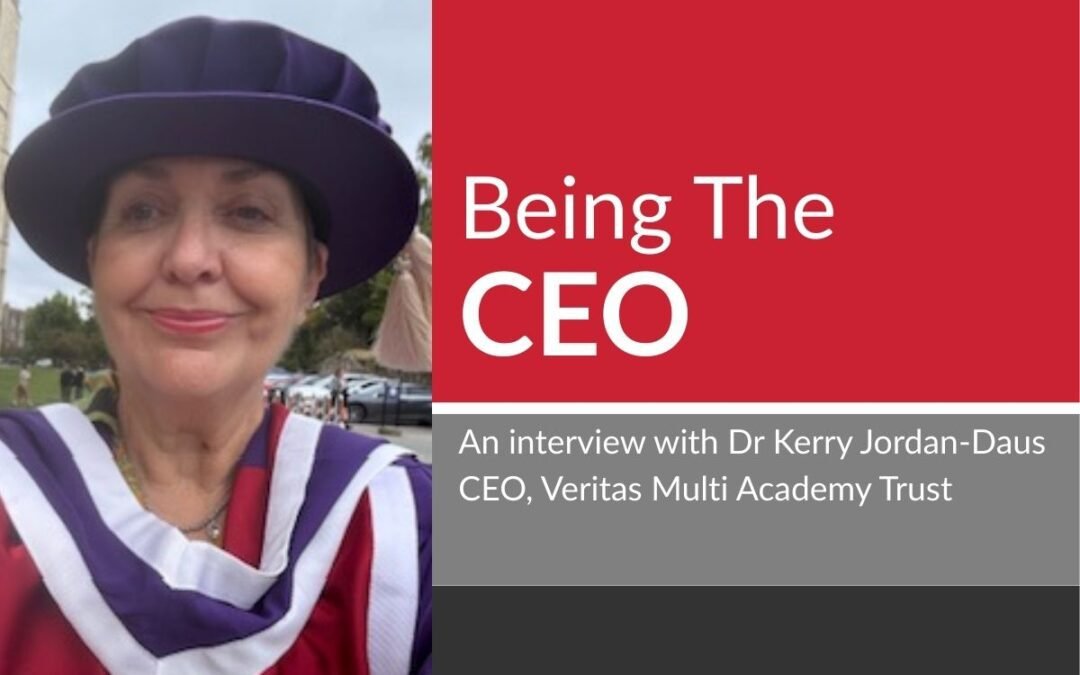Michael Pain
As anyone who reads this knows, I am one of the academy trust sector’s biggest advocates. I have literally ‘bet the house’ on helping it to improve and become better. I spend a lot of my time working with our CEO members across the country to identify and share best practices, challenge the sector to become better where necessary, and address misconceptions. I want all trusts to succeed for the right reasons – for their children and for their communities. I have a belief that our best leaders and teachers should be able to lead and shape the education system across their local communities – they are the experts and the trust model can provide a terrific platform for that. It is why I write this article will a sense of sadness and frustration, but also with desire and hope to encourage a better way.
At Forum Strategy I have a dedicated team of researchers, policy & CPD experts, and writers – all helping to spread good practice and make this system work for the better. We are actively supporting over two hundred trusts at anyone time – in one form or another. I am generally proud of what is happening in the sector, even if the message isn’t quite getting through to the general public yet. People still see it as opaque, distant and unaccountable, which is why getting governance, behaviour, and messaging right – from the top down – matters so much. The media is constantly watching and parts of the sector still struggle to learn and adapt.
“People still see it as opaque, distant and unaccountable – which is why getting governance, behaviour, and messaging right, from the top down, matters so much.“
There is a lot to do. In December, we at Forum – working with over 150 trusts – published a new narrative to help good trusts relate their work and efforts to the general public in their communities. The narrative is intended as a ‘starter for ten’ platform for trusts to communicate their rationale and their commitment to public service, and advocate the importance of community, people and inclusivity to the sector’s growth. So many trusts are using collaboration and the expertise that scale brings to make schools great places to work and learn. These messages are so important for winning hearts and minds.
Despite the great work and impact taking place in many trusts – most of which are led by dedicated and talented former headteachers – some of the so called ‘elite’ in the sector are doing it no favours. One such example is the Queens Street Group – a name which conjures up exactly the kind of image we need to avoid, in my view. But what is it? This group of almost two dozen CEOs (with a former NSC on its board and a director registered at companies house, and two former RSCs in its membership) is closed to many hundreds of CEOs across the sector. It was originally set up – according to its website – with the involvement of Lord Adonis. It is overseen by a board of (almost exclusively) men. The group of CEOs – which is made up of 16 men and 1 women – is currently limited to ‘founding members’, with no application process yet being in place for others wishing to join it. It’s symptomatic of a concerning trend in the sector and is by no means the only example we could point to.
This particular group appears to be invitation only. The only hint of a criteria can be found in the group’s annual report: “Compared to the national picture, pupils in schools managed by QSG member Trusts are considerably more likely to qualify as Pupil Premium students.” The group sets out a number of benefits of MATs, stating these are “especially the case in Trusts adhering to principles of ethical leadership and best-practice innovation, such as those found in the membership of QSG.” Yet surely if ethical leadership were the criteria for entry, hundreds more trust CEOs would be involved (or at least invited).
Furthermore, the group’s website discusses the importance of a ‘horizontal’ relationship, rather than the ‘vertical‘ relationship experienced by others in the sector. The website goes on to say: “ Undeveloped until recently has been any ‘horizontal’ discussion through which senior executives across a stable, like-minded and ethically committed grouping of MATs can regularly exchange operational insights, peer-to-peer, and thus test collective understanding and develop joint perspectives and priorities.”
The group appears to want to address this need for a more horizontal relationship – if you are one of the 16 men or one women invited! The sessions with guests from national regulatory agencies (including the ESFA, HMCI and the former NSC and now director) had according to its annual report “common purpose – to discuss with each guest how, in the area of education for which they were responsible and expert, MAT operations might be enhanced and refined for the benefit of all pupils. In each case, this resulted in discussion that deepened the collective insight of the CEOs about the nature of incremental improvement in pupil education in the schools managed by QSG Trusts. At the same time, it allowed each guest to reflect on adjustments to processes in their own organisation that could assist the Trusts in achieving this shared goal.” The small group also suggests that it is “well placed to suggest practical refinements to the work of Regional Schools Commissioners, especially when it comes to the processes involved in brokering academy sponsorship. (This process perspective runs in parallel with the policy remit of Headteacher Boards in their capacity as advisory bodies.)” This appears to be an important and influential proposed function for a private limited company.
There are other examples out there, not just this. However, I believe this sort of thing means the academy trust sector has a long way to go in terms of its narrative, its inclusivity, its transparency, and it’s perception. As a champion of the sector, and the profession generally, this depresses me enormously. We have hundreds of phenomenal leaders and trusts who have the opportunity to deepen the sector’s purpose, its capacity for developing and retaining talent, its platform for improving outcomes for a generation (in a complex and uncertain world), and the sense of professional togetherness.
What message does it send to female CEOs, leaders, teachers and, indeed, pupils – or those of ethnic minorities?
If we are to create a system that convinces the public of its worth, inclusivity and transparency, we need to bring the vast talent of CEOs together to inform policy and share ideas, rather than doing so in a ‘metaphorical’ smoke filled room in London. We also know from leadership and governance research beyond education, that systems and organisations that are diverse, inclusive and representative tend to outperform those that are not so, in the long run. We should learn from that. The private sector is making progress on diversity, yet we’re sending the wrong message from the very top. What message does it send to female CEOs, leaders, teachers and, indeed, pupils – or those of ethnic minorities?
“We also know from leadership and governance research beyond education, that systems and organisations that are diverse, inclusive and representative tend to outperform those that are not so, in the long run.”
The board of this group should question whether it needs better governance advice and advice on how to build togetherness through professional, gender and ethnic representation. At the moment, the lack of diversity and inclusivity helps the trust systems’ opponents no end – it furthers their argument and cause. Indeed, they would be right to challenge it. At best, this current set up is bad PR for the trust sector, and for the trust and people involved in these closed groups. I urge all CEOs across the sector to lobby the board of QSG to begin its reforms by opening up its membership to more women and ethnic minorities – 16 out 17 members being men is not good enough: https://queenstreet.group/board-members/ . Its outputs and its potential will be all the better for it.
Once we get the tone right at the top of the trust sector, the rest of the sector – the hundreds of CEOs and trust boards trying to make a difference and make the case for academy trusts – probably won’t feel so undermined. Good governance and doing the right thing matters.
As for me, I am mindful this challenge might alienate some of these ‘influential’ people from me. I hope it won’t and they will accept this as a fair, yet admittedly robust, challenge based on a desire to nudge the system in the right direction. If it does alienate them, I have never been one for metaphorical smoke filled rooms anyway and I’m confident that a critical mass of CEOs feel the same way. The standards we walk by are – indeed – the standards we accept.


